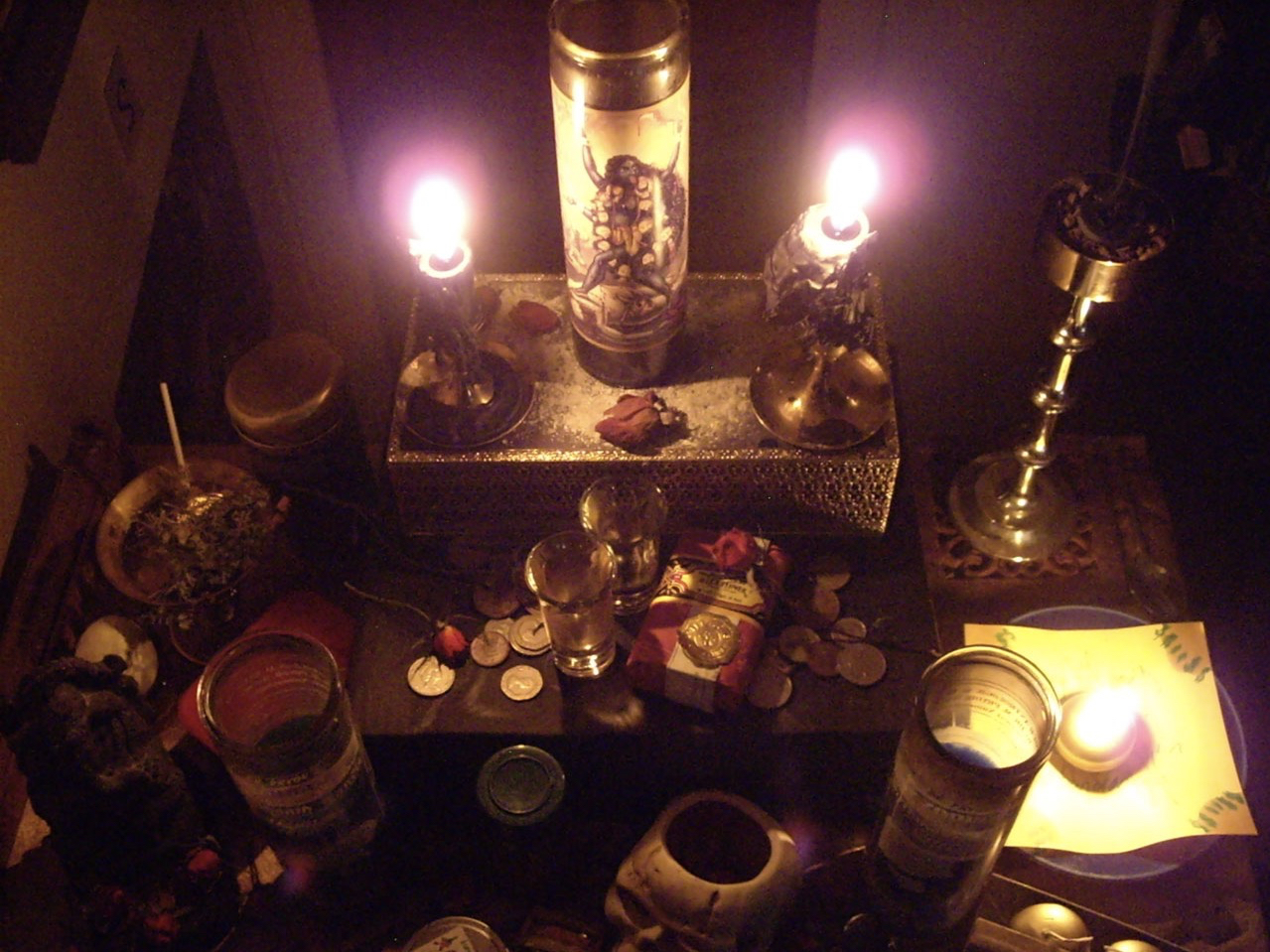
A voodoo-style spell for riches cast from Talia’s Tarot. Creative Commons free use permissions http://www.publicdomainpictures.net/view-image.php?image=3314
If you’re going to the time and effort of performing a spell you want results, right? Then make sure your efforts are not wasted by doing some basic planning before you start.
Spells work by tapping into energies and forces that are natural and, believe it or not, are scientific. That means they follow basic rules which is why we are able to do magick at all.
Most spellworkers know to try and time their spells to work with cyclical forces such as the phase of the moon. Spells for increase are best accomplished during the growing (waxing) or full phases of the moon. Spells for reducing or banishing work best if done during the diminishing (waning) or dark phases of the moon.
Similarly, spells work better if we choose symbolic elements or actions that are in tune with the energies with which we are trying to work. We choose deities or spirits to petition based on their areas of expertise. We choose herbs, stones, incenses, even candle colors that are harmonious with the spirits and energies we seek to encourage.
If you attempt to do a spell that is at cross purposes with major energy currents then you are far less likely to get the results you want. Work with the flow and you have external forces acting in your favor!
It’s a common statement among spellworkers that intention is important — and it is. The words and symbolism we choose to use in our spells need to be consistent with that intention to have maximum effect. If intention was the only thing that was important, and the words in our incantations and prayers really don’t matter, then why bother with working out the words of a spell at all? For example, which of the following spells, literally as written, would have much chance of succeeding?
Example of a sloppy spell: A Spell to Help One Study for an Exam
During the waxing or full moon, light a white candle and recite the following incantation three times:
Blah blah blah blah,
Blah blah blah.
Blah blah blah blah,
Blah blah blah!
Here’s that same spell with words chosen to verbalize the intention and focus the will on the goal.
Example of a crafted spell: A Spell to Help One Study for an Exam
During the waxing or full moon, light a white candle and recite the following incantation three times:
Clear my mind and sharpen my senses
Help me now internalize
All the info I must know
To the teacher I must show!
Both spells have the same intention, are performed at the same phase of the moon with the same items being used. I know which one I would choose to use!
When we use spoken or written language in our spells it also becomes important to use accurate grammar and effective word selection. Be careful what you ask for — you might get it! Be sure that the words you are using, and how you use them, expresses your actual intention. If your wording is not accurate you might, in a least troublesome outcome, end up with a spell that does nothing. In a more troublesome outcome you might get results but ones that are more of a problem than the problem you were trying to fix in the first place.
Here’s an example: if you had a secret that you desperately needed to keep, would you choose to perform a spell with an incantation that says, “help me bear this secret,” or instead, “help me bare this secret”? Choose carefully! One would help you carry the responsibility, the other would reveal the secret to public view.
Words matter. Clear intentions matter. Consistent symbolism matters. Being aware of energy currents and cycles, and working with them rather than against them, matters.
